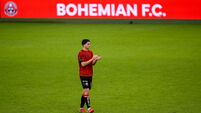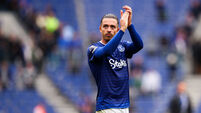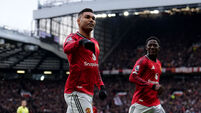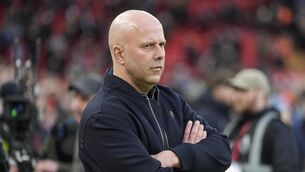Chink of light in Faroe fog
And they will remain there at least until September 3 when France - three points and one game behind Brian Kerr’s men - welcome the Faroe Islands to the Stade de France. The spectacle in Paris will be, it’s fair to say, a little different to the scene last night in Torshavn.
Brian Clough, who liked to see the ball zipping across the turf, used to say that God never intended for football to be played in the clouds.











